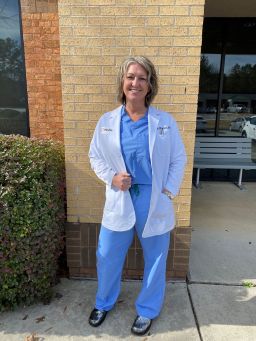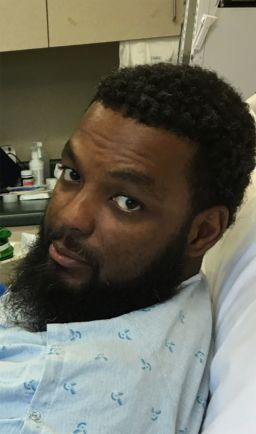Here’s a sobering statistic: By 2030, cases of colorectal cancer in people under 50 are expected to nearly double, and it will become the leading cause of death for people age 20 to 49.
But there’s good news, too. Overall, colon cancer diagnoses have decreased. Experts attribute that to more cancer screenings.
So what can be done to lower rates of the disease in the younger population? And why is it happening in the first place?
Younger patients
Researchers think that “something happened in the 1950’s and 1960’s” that triggered the current cases of young onset colorectal cancers, according to Dr. Robin Mendelsohn, a gastroenterologist and Co-Director at the Center for Young Onset Colorectal and Gastroinstestinal Cancers at Memorial Sloan Kettering Cancer Center.
“I think if it was one answer, we would have figured it out,” says Dr. Mendelsohn. “If it were something obvious, or one major thing, we would have found it.”
She thinks it is more likely some combination of behavioral and/or environmental changes.
Among the things researchers are looking at: the age of parents at time of the patient’s birth, whether they were born via Caesarean section, whether they were breast fed, antibiotic use – and even wifi exposure.
Younger patients tend to get diagnosed at later, more advanced stages of the disease because they’re not being screened and they may have to go through several doctors before they figure out what’s wrong.

April’s story
April Witzel, a nurse practitioner and midwife, was diagnosed with colorectal cancer at age 45.
She didn’t have any obvious risk factors: “I’m female, I’m Caucasian, I didn’t eat a high-meat diet, I didn’t have colon cancer in my family,” she says.
Her first symptoms were intense stomach pain and nausea. Then there was blood in her stool – so much blood, she took a picture of the toilet contents and went to the ER.
And even though she’s a health professional who spends her days inside the hospital, Witzel didn’t receive the care she expected.
“I was having severe pain, and I’m crying, and I had blood in my stool. And he [the doctor] said ‘Are you sure you aren’t on your period?’”
A shocked Witzel responded: “I am a woman’s health practitioner. I see more vaginas in a day than you see in a year… I know whether I’m bleeding from vagina or my rectum.”
The ER doctor then took another look at her pictures and asked if her she’d “eaten beets recently.”
Advocating for yourself
“When I think about how much I had to advocate for myself… I had the medical knowledge. I didn’t have the cancer knowledge, but I knew how to navigate the system. So many people don’t. And they just expect that their caregiver is going to do to the right thing,” Witzel says.
By the time Witzel got her diagnosis, her disease had spread. “It’s so treatable if it’s caught early. I currently have stage four with metastases to my liver and lungs.”
Witzel’s story is an example of what can happen when younger people go in for an appointment and doctors don’t think to test for something usually associated with an older population.
Her story may be a worst-case scenario, but she hopes others will learn from her experience and push to receive the care they need.
Key differences between young and old patients
The majority of younger colorectal cancer patients don’t have family history of the disease, and most of them don’t have a genetic disposition toward it. And while obesity does seem to play a small part in some of these cancers, many of these younger patients are vegetarians; some even marathon runners – lifestyles usually associated with being more protective against developing colorectal cancer.
“Our hope in our research is to try to find a high-risk group to do early screening,” says Dr. Mendelsohn.
She urges everyone over 45 to get a colonscopy or other screening test.
Those mail-away tests are generally reliable and helpful, she says, but there is a reason why colonoscopies remain the gold-standard: “In general, stool-based tests are as good as colonoscopies for early detection of cancer. But they’re not as good at finding polyps. [With a colonoscopy] you can get them [the polyps] removed at the time,” says Mendelsohn.
Ultimately, says Dr. Mendelsohn: “Colorectal screening saves lives. If you’re younger than screening age, know your family history. We are working hard to figure this out, and there’s hope on the horizon that we will figure it out.”
African Americans at increased risk
Black men and women are particularly at risk for developing colorectal cancer.
Timothy Mitchell was 43 years old when he was diagnosed.
“The older generation didn’t talk about what was going on, which was a disservice to us,” Mitchell says. “It was almost a hush-hush thing.”
Knowing your family history is important and can save your life. In Mitchell’s case, his relatives didn’t always talk about why family members were in the hospital, what illnesses they had, and what their symptoms were.

“What goes on in the house, stays in the house. We don’t tell people our business,” Mitchell says. For him, that could have been fatal.
“Because we don’t know what to look for, because I had Lynch syndrome, and until I talked to my auntie, I didn’t know that so many people in my father’s family had so much cancer.”
That Lynch syndrome put Mitchell at an increased risk for colorectal cancer, something he didn’t realize. Now he plans to encourage his sons get their first colonoscopies in their early 30’s. (Doctors generally recommend children of colon cancer patients receive their first colonoscopies about 10 years before their parent’s age of diagnosis.)
Mitchell, an avid motorcycle rider, regularly approaches other bikers and strikes up conversations about colonoscopies. Not your usual biker talk, perhaps, but potentially life-saving.
“People hear they have cancer and they think they’re gonna die. You should not feel like it’s a death sentence,” he says.
“Cancer is detectable, treatable and beatable,” says Mitchell.
What you need to do
Knowing your family history and talking about it is important. A family history of Lynch syndrome or colon cancer is something you should be aware of, so you can be screened early.
Anyone experiencing a significant change in bowel habits, or anyone who sees blood in their stool, should consult a doctor.
“Most people don’t talk about their poop; it’s not good dinner conversation,” admits Dr. Mendelsohn. Most rectal bleeding does not turn out be cancer, stresses Dr. Mendelsohn, but you should always be checked.
Find a doctor you feel comfortable with, who’s taking your concerns seriously.
“You don’t want to talk about bodily functions,” admits Witzel, the nurse who wasn’t taken seriously. “It tends to be an embarrassing thing. But I will share my story every day if it saves one person.”
How to help
If you’d like to help colorectal cancer patients, click HERE or use the form below:



